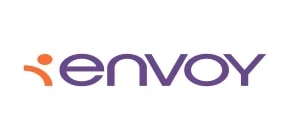Initially granted in March 2020, the Department of Homeland Security (DHS) has provided guidelines for I-9 verification that relax in-person requirements and allow for remote I-9 verification. DHS has since announced several extensions to these requirements. The latest extension was announced on September 15, 2020.
Who does this impact?
This policy only applies to employers with employees who are working remotely due to Covid-19. These employers will not be required to inspect the identity and employment authorization documents in the employee's physical presence until after the Covid-19 emergency concludes, so long as the company provides written documentation of remote onboarding on the Form I-9. These employers must inspect the Section 2 documents remotely, i.e. over video, email, fax, etc. The original timelines for completion of I-9 verification remain in effect.
If an employee is physically attending work at a company work location, these flexibilities do not apply and the employer must verify the employee's documents in person within the usual required timeframes.
How long will this policy remain in effect?
The current extension of flexibility for I-9 verification requirements is set to expire on November 19, 2020. Given that many companies plan to continue remote operations for the foreseeable future, there is a good chance that these I-9 flexibilities will be extended once again.
Once the Covid-19 emergency concludes, physical inspection of documents for employees who were originally I-9 verified remotely will be required. Once the documents have been physically inspected, the employer must add "documents physically examined" with the date of inspection to the Section 2 additional information field on the Form I-9.
How are Envoy Global and Global Immigration Associates (GIA) responding?
Envoy and GIA will continue to monitor additional updates from DHS in regards to I-9 flexibility.
What do I need to do next?
If you have questions regarding the flexibility of I-9 verification requirements, please contact your GIA attorney for further guidance.
Originally published SEPTEMBER 18, 2020
The content of this article is intended to provide a general guide to the subject matter. Specialist advice should be sought about your specific circumstances.

